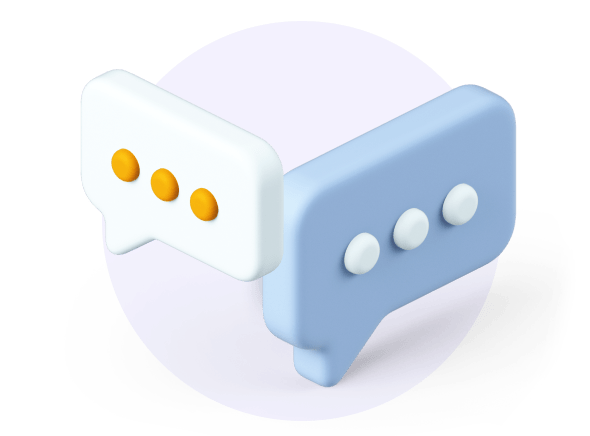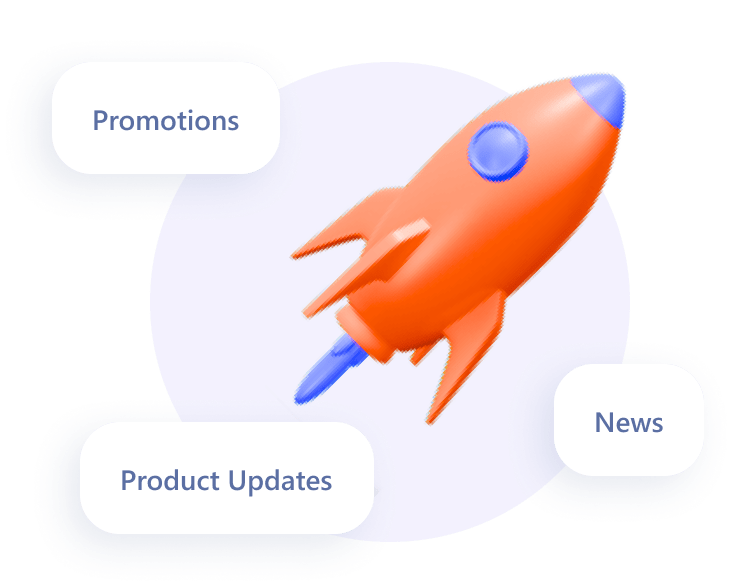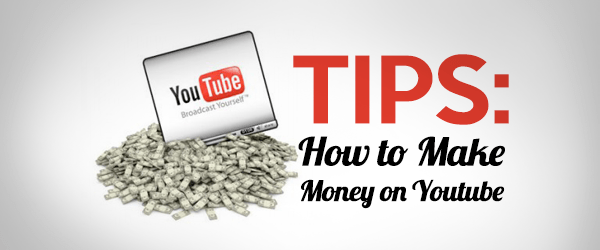Internet marketing strategies in 2022 are offering a plethora of possibilities. Today, we will examine the most popular 10 types of internet marketing strategies and explain how to use them.
Recognizing the various types of internet marketing strategies
Do you understand the various types of internet marketing strategies and how they might help your business thrive? In any conversation about promoting a business, internet marketing strategies are regarded as the most successful and cost-efficient approach to promoting a company and creating leads.
Before you can put all these strategies to work for your business, you must first understand what they include and what they provide. Here is a fast reference to the top nine internet marketing strategies to help you start marketing your business online.
Search Engine Optimization (SEO)
SEO is the practice of improving your blog or website’s organic, free, or “natural” placement in search results. SEO comprises both on-page and off-page variables (content, structure, and user-friendliness) (links from other sites, social shares, authority).

Specific SEO strategies entail modifying specific parts of your website to suit Google’s specifications while also ensuring that your website provides the best overall experience for visitors.
How does SEO work as an internet marketing strategy?
Search engines such as Bing or Google use crawlers to collect data on all of the internet’s content. Following internal links within site as well as exterior links to other sites, the crawler begins with a recognized web page. Content on those sites and links let the crawler understand what each page was about and how it related to other pages in the search engine’s massive database, known as an index.
An advanced algorithm is used to provide the most accurate and relevant list of results for a user who types or speaks a query into the search box. These natural results may contain text-heavy web pages, news items, images, videos, local business listings, and other specialized content.
Numerous aspects go into search engine algorithms.
Those components are always improving to keep up with changing user behavior and breakthroughs in machine learning. Here’s how a panel of experts ranked their significance:
SEOs use their knowledge of these ranking factors to create and implement search marketing strategies that incorporate a mix of on-page, off-page, and technical best practices. An organization that wants high SERP rankings and a lot of high-quality user traffic should use a strategy that emphasizes user experience doesn’t manipulate rankings and changes with search engine and user behavior.
Search Engine Marketing (SEM)
Search engine marketing (SEM) is the technique of gaining website visitors through paid search (Pay Per Click) ads. Previously, SEM was used as an umbrella term for SEO and paid search.
As the digital marketing business matured, the word “SEM” came to refer only to paid search operations, rather than both types of internet marketing strategies (according to Search Engine Land).
How to use SEM as an internet marketing strategy?
I thought of writing this ‘What is Search Engine Marketing Guide’ to dispel the confusion about the many levels incorporated under Search Marketing. We started this essay by giving a glimpse of unpaid and paid SEM, and now the moment has come to clarify the air about this.
Earning visitors via unpaid or free search rankings comes under Search Engine Optimization strategies. Unpaid SEM, also known as SEO, can be divided into two major categories:
- Organic SEO
- Inorganic SEO
Pay-per-call (PPC) or pay-per-click (PPC) advertising
PPC marketing is divided into paid search (as mentioned above) and paid social marketing. Ads are placed on search engines or social media platforms, and companies are charged each time their ad is clicked.
The most prominent paid search platform is Google AdWords, which is followed by Bing Ads, which also offers search ads on Yahoo. Display, mobile, retargeting/remarketing, and paid social advertising are all part of search marketing.
Facebook, Twitter, Instagram, and other social networks have expanded their ad options, making organic views of marketing postings more difficult to achieve.
As a result, paid social now accounts for a larger portion of most businesses’ PPC ad spend budgets. In the short term, PPC strategies could help your business become more visible and make more money.
How to use PPC as an internet marketing strategy?
You can’t afford to just dump everything into a spreadsheet and hope for the best with a vast keyword database that’s always increasing. You’ll need a good method for organizing your keywords. And grouping your keywords into small, meaningful groupings is a critical component of keyword organizing.
Remember that relevancy is the key to excellent quality scores and a solid ROI from PPC marketing. When you organize your keywords by relevancy, you increase your chances of success because:
- Small, well-organized keyword groups make it easier to produce relevant, tailored ad copy.
- Smaller segmentations encourage bidding on narrower keywords, which are less competitive and less expensive, as well as attracting more qualified searchers.
- When your ads are more targeted and related to the keyword, your click-through rate increases, which raises your quality score.

These are just a handful of the ways that search engines reward PPC marketers who properly group keywords. However, suppose you have thousands, hundreds of thousands, or even millions of keywords for PPC search engine marketing. In that case, effective organizing becomes extremely difficult very quickly—at least in a standard spreadsheet application.
Check out a free keyword grouping resource to discover how to group keywords efficiently. It is a chore that will save your team a significant amount of time and effort that could be better spent on more intelligent paid search marketing duties. Your PPC campaigns will expand in size, relevance, and value with WordStream’s pay-per-click company, lowering the time and money you spend on SEM and PPC marketing.
Content Marketing
According to Moz, content marketing is the creation and dissemination of relevant, valuable content to engage with customers and achieve marketing objectives. Content marketing strategies focus on talking to customers instead of selling. They do this by always producing content that educates, entertains, or gives value to customers in order to attract and keep a certain target audience.
Blogs, videos, podcasts, Infogrames, social media posts, and other forms of online information are all examples of content. High-quality content is important in all types of online marketing strategies, including SEO, PPC, social media marketing, email marketing, and so on.
How to Use Content as a Marketing Strategy Online?
Many marketing organizations appear to be trapped in a never-ending loop of chasing the needs of internal content and experience silos and equipping them with technologies to optimize each distinct layer of the customer’s journey.
Multiple technology solutions for managing data, activating content, and tracking consumption of the exact same content—at distant portions of the customer journey—have become ubiquitous in our work and study over the last decade.
For example, in today’s B2B marketing, the lead generation strategy is centered on customized content exchanges that establish trust over a long and complex buying process. The need to stand out drives the purchase of paid digital media. It emphasizes thought leadership content more and lessens the buy-now push to action.
B2B marketing is becoming increasingly focused on delivering personalized content to specific accounts. The PR, influencer, and analyst relations teams are working hard to get people to talk about different points of view on a wide range of digital platforms.
When these activities fail to function properly, it is because they have segregated capabilities. Instead of connecting the entire trip, the teams attempt to solve each step of the customer’s journey.
When they operate successfully, it’s because of a well-connected, unified strategic content approach that adds value to customers’ journeys. In other words, a superb content strategy is the foundation of today’s integrated marketing approach. Suppose we could arrive at a foundational and strategic content marketing approach. In that case, we could well have discovered the heart of a central and integrated marketing strategy.
Marketing on social media

SMM is the use of social media platforms and websites to promote your business and engage with clients. Social media marketing may not always result in sales. Instead, it is used to get more people to read, get links, draw attention to content, and build a “brand.”
Suppose you’re thinking about getting your company on social media. In that case, you should think about which platforms are ideal for you and which ones will bring the greatest benefit.
Because not every social media platform is a suitable fit for every business. You should focus your efforts and abilities on the platforms where you are most likely to reach and engage with your target audience. Each platform has its own aim, purpose, and audience. Instagram, for example, emphasizes pictures, whereas Twitter allows you to put personality into your postings and communicate with followers.
How to use social marketing as an online marketing strategy?
Here are some best practices and tips to help you succeed on social media.
1. Always post something.
Maintain a consistent posting schedule if you want your fans to know what to expect from you. This can also help you avoid posting too frequently, which can be annoying to your followers.
Enjoy posting.
Run contests, link to your website or special deals in your profile bio, and present live videos with exciting updates or news to generate more leads and engage with your consumers. You can also sell directly on social media sites by using Facebook or Instagram Shops.
3. Determine who your target audience is.
To inform your content, use your analytics tools to see demographic statistics, customer behavior, and social media trends. Knowing what your audience wants to read from you and responding accordingly can help you increase your engagement rates significantly.
4. Create a strategy for social media marketing.
The best way to guarantee success on social media is to plan ahead of time. This means sitting down, rolling up your sleeves, and coming up with a social media marketing plan that includes each platform you plan to use.
Email marketing
One of the most popular and cost-effective types of digital marketing strategies is email marketing. Email is sometimes regarded as a “more effective replacement” for direct mail marketing since it allows you to reach a large network of clients in an instant with newsletters, ads, or reminders. Email marketing can be very specific because it can use demographics and other data to divide lists and get the best results.
How to use email marketing as an online marketing strategy?
Do you want to learn how to get started with email marketing? Email marketing is made up of multiple moving parts, but it doesn’t have to be difficult. Here’s how it works:

Begin With Your List: The simple line is that you can’t launch email marketing campaigns if you don’t have anyone to send them to. Another thing to keep in mind is that email marketing will not work unless you have the correct people on your list.
That means you’ll need to collect leads in order to expand your email list with your target audience. There is no better tool for this than MailChimp.
MailChimp is the most popular lead generation software in the world. We enable businesses to develop attractive opt-in campaigns in minutes with no coding necessary.
Then, using our cutting-edge targeting rules, you can show these advertisements to the appropriate people at the right moment in their customer journey.
As a result, you may see a significant improvement in the quality of leads on your list while also seeing a significant boost in your company’s earnings. Mailchimp also integrates with more than 30 of the most prominent email service providers.
Influencer marketing
When it comes to Influencer marketing, this is one of the newest types of internet marketing strategies, but it is predicted to grow in popularity in 2018 and still is popular in 2022. Influencers (those with a large social following) are paid to promote your company’s products or services. As long as you find influencers who share your company’s values and who can connect with your customers, this marketing method can work very well for some businesses.
How to use influencer marketing as an online marketing strategy for business?
Paying influencers directly for postings is the simplest approach to harnessing influencer marketing.

Take, for example, Instagram. There are numerous models promoting protein shakes, water bottles, and other related things. These models are paid per post. You don’t even have to be a large company to benefit from this form of marketing.
- Assume you work in e-commerce and sell things. Influencers on the level of Kim Kardashian are not required. I was just talking to an influencer with 500,000 followers the other day. I asked her how much she was paid per post, and she said it was around $800. She is twenty-four years old. That’s a lot of money for very little labor at that age.
- If your e-commerce company pays $800 per post and your average order value is $50, you can see how the math works to your advantage. Assume one of this woman’s ads nets you $5,000 in orders. That’s the kind of deal you’d do all day, every day.
In fact, you’ll need to find even more influencers. This is something you should bet big money on.
Affiliate marketing
We discuss a lot about affiliate marketing is the technique of earning a commission by promoting or advertising the products or services of other companies. Affiliate marketing frequently entails promoting a product via a blog or video or including ads on your website. You are compensated for each sale made through your links.

You may boost leads and sales from your advertisement by using a suitable associate offer and promotion plan.
How to use affiliate marketing as a marketing strategy?
Here’s what you should keep in mind to make the most out of your e-commerce affiliate networks, whether you have a small company or a business empire.
1. Create an e-commerce offer.
Before you begin looking for affiliates, you should establish what you want to promote and what kind of outcome you want. This is your proposal. So, what precisely is the proposal? It’s a deal offered by an advertiser to entice individual marketers. It could include information about your brand or business, the commission rate, shipping details, product descriptions, a landing page, creatives or photos linked to the product, and so on.
2. Ensure that the appropriate items are delivered to the appropriate people.
One of the most common errors to avoid is forcing the entire e-commerce website down the throats of potential customers. Your efforts should instead be focused on meeting their requirements. Determine the best items to satisfy the needs of each audience group.
Users are quick to dismiss generic ads and campaigns that are unrelated to their present needs. This is why online advertising must be precise in its targeting.
3. Be aware of the time and place.
In e-commerce, time and location are two essential elements. When planning your campaign after joining a partner program, keep time and location in mind.
Take note of time zone differences. When are your ads most likely to be seen by prospects? These ads should only be shown to people who live within the geographical range of your distribution services.
4. Design a landing page
To begin with, your home page should not be your landing page, mostly because the bulk of viewers will not pay attention for long since we are all easily distracted these days. Keep in mind that the ultimate goal is to convert as many leads to sales as possible.
You should concentrate on the main headline (make it catchy and punchy), social proof, CTA (call-to-action), eye-catching media content (pictures, videos, and so on), and compelling copy (containing benefits and product features). Timers, containers, and enough white space are just a few of the small features that can boost the effectiveness of your landing pages.
5. Make visuals available to your affiliate marketers.
The greater the amount of attention it receives, the better. The better the quality, the higher the price. Words are frequently outperformed by visual content. Or, if you combine the two expertly, you’ll have an affiliate offer that marketers will want to promote.
In e-commerce, affiliate marketing necessitates high-resolution photographs that depict the products, their descriptions, their benefits, and, in certain cases, social proof. As a result, you should always generate and distribute high-quality graphics to your publishers.
6. Think about how you’ll track your affiliate offer.
To determine how affiliate marketing affects your eCommerce site, you must first understand how many people click on your ads or links, how many of those clicks convert into prospects, and how many of them convert into conversions. Tools like Google Analytics and traffic trackers can give you the data you need to evaluate the performance of your affiliate program.
7. Select a marketing plan (or let affiliate network experts do it for you).
Another critical part is selecting an appropriate promotion strategy for your offerings (if you’re working with publishers directly). Suppose you choose an ad network like Google. In that case, you submit all the relevant information about your product, and affiliate marketing professionals decide how to best promote it. The same applies to affiliate networks.
The finest affiliate deals begin with the proper products. Determine which demographics are likely to be interested in your products and services. Identify patterns in their online behavior, target them where they are likely to be found, and personalize your ad to their preferences.
Reputation marketing
Reputation marketing entails developing a positive perception of a company through press releases, social media, and customer review systems. Online referrals and reviews have grown in importance in particular areas, such as tourism.

Developing a distinct brand, encouraging customers to leave reviews, and responding quickly to solve customer complaints on social media and review platforms are all aspects of reputation marketing.
The proactive practice of influencing what people find out about your business online is known as an “online reputation management strategy.” It is an important digital marketing business because most people will buy from your business based on how they perceive it when they search for your brand or come across your marketing channels online.
Before making a purchase from you, most customers will check your internet reviews and ratings.
According to a survey, around 85% of consumers accept online reviews as personal recommendations. In this day and age of e-commerce, 49% of customers would require at least a four-star rating before they would trust your goods or customer service. This material on client onboarding may be found here. You could work with us, the best digital marketing company, to help you manage your online reputation.
How to use reputation management as a marketing strategy?
When potential customers or clients come across your business online, you must offer a positive picture. And it goes without saying that people will use search engines, particularly Google, to learn more about your services and products. Read this PPC marketing strategy advice. Assume that there is content for your branded keywords ranking on the main page of SERP results that speaks negatively about you.
In that instance, you run the risk of undermining people’s trust in you and your ability to sell. As a result, you could use effective tactics such as developing content for your brand name, publishing it on other well-known websites, and pushing detrimental content below the first page. As you may have heard, the second page of Google SERP results is the perfect place to hide a dead body. Here’s all you need to know about B2B sales outsourcing.
Online reputation management encompasses a variety of channels. As a result, it is necessary to have a full-fledged strategy in place to improve your brand image and demonstrate your authority to everybody who comes across your website.
This is how you increase your B2B sales.
Conclusion
Now that you have a better grasp of the many types of internet marketing strategies, it is time to put them to use for your company! An Internet marketing company can provide you with all of the tools you need to efficiently market your company on the internet.
There are many types of e-marketing, and we covered most of them in this blog post. Do you have any other internet marketing strategy that we have not mentioned? Let me know in the comments below.









